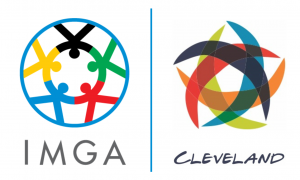John Bakuhn, Jr. discovered his passion for running later in life, inspired by his daughter’s college cross-country meets. Despite overcoming health challenges, including bone cancer and sarcoidosis, John has embraced sport, running half marathons and recently competing in the IMGA Pan-American Games in Cleveland, marking his first track race experience.
We caught up with John to discuss his journey into running, how it’s helped him through difficult times, and why he believes it’s never too late to start pursuing a sport, no matter the challenges.
Can you give us a little introduction about yourself and your favourite sport?
Hi, my name is John Bakuhn, Jr., and I’m a distance runner. I’ve been running for about eight years now, however, I only took it up in my 50s. In my younger days, I was a bodybuilder and even competed in a few competitions. However, some health issues eventually kept me from physical fitness, and over time, I drifted away from it.
My daughter, who is a Cross Country and Track athlete in college, inspired me to start running. I found myself getting tired just running around to watch her Cross Country meets, and that’s when I decided to give it a try myself.
Watching my daughter train reignited my interest in fitness, and I started running short distances, adapting my style to accommodate my bone cancer in my shoulder.
I’ve gradually worked my way up, and now I’m proud to say that I’m able to run half marathons. It’s been a journey, and running has become an important part of my life again.
You competed in track/running events at the recent IMGA Pan-American Games in Cleveland – did you enjoy the competition?
It was especially meaningful to run on the same track where I had watched my daughter compete numerous times. The 10K road race was also a lot of fun—that’s a distance I am used to running and it was a lot of fun!
Talking to other competitors from around the world before and after the race was an added bonus.
What has been the key to sustaining your love of playing of sport until now?

Having faced significant challenges, including battling illnesses like bone cancer, how has sport helped you through these difficult times in your life?
I have overcome two potentially fatal illnesses—bone cancer, which required extensive surgery, and sarcoidosis.
During the period when I was not active, I had no energy or drive to do anything. Once I realized that, with some modifications and by using pain as a guide for intensity and duration, I could become a runner, I was hooked.
Running provided me with a way to shift my focus away from my limitations and instead concentrate on improving my distance and speed. It motivated me to adopt a better overall diet and lifestyle. I also gave up meat and became a vegetarian around the same time, which has greatly improved my sense of well-being and outlook on life.
Without running and its benefits, I don’t know where I would be physically or emotionally today.
Did you enjoy the Games in Cleveland? If so, why did you enjoy it?
Everyone has a different story and it was a pleasure just to compete with everyone. Every participant was a winner.
Any career highlights/favourite moments/greatest achievement?
How important is playing sport, to your health and mental wellbeing?
Without the running lifestyle, I honestly don’t know what shape I’d be in today.
Running has also helped me cope with the challenges of my health conditions. Despite having Sarcoidosis, primarily affecting my lungs, I believe running has prevented it from getting worse. I actually feel better and have more energy than I did 20 years ago.

What is your advice to anyone considering pursuing masters sport?
There’s no downside, only positive results, so I encourage everyone—at any age—to do something. It may be tough at first, but once it becomes a habit, you won’t want to stop. Don’t let age hold you back; as the Games have shown, you can enjoy sports well into your 80s and beyond.




